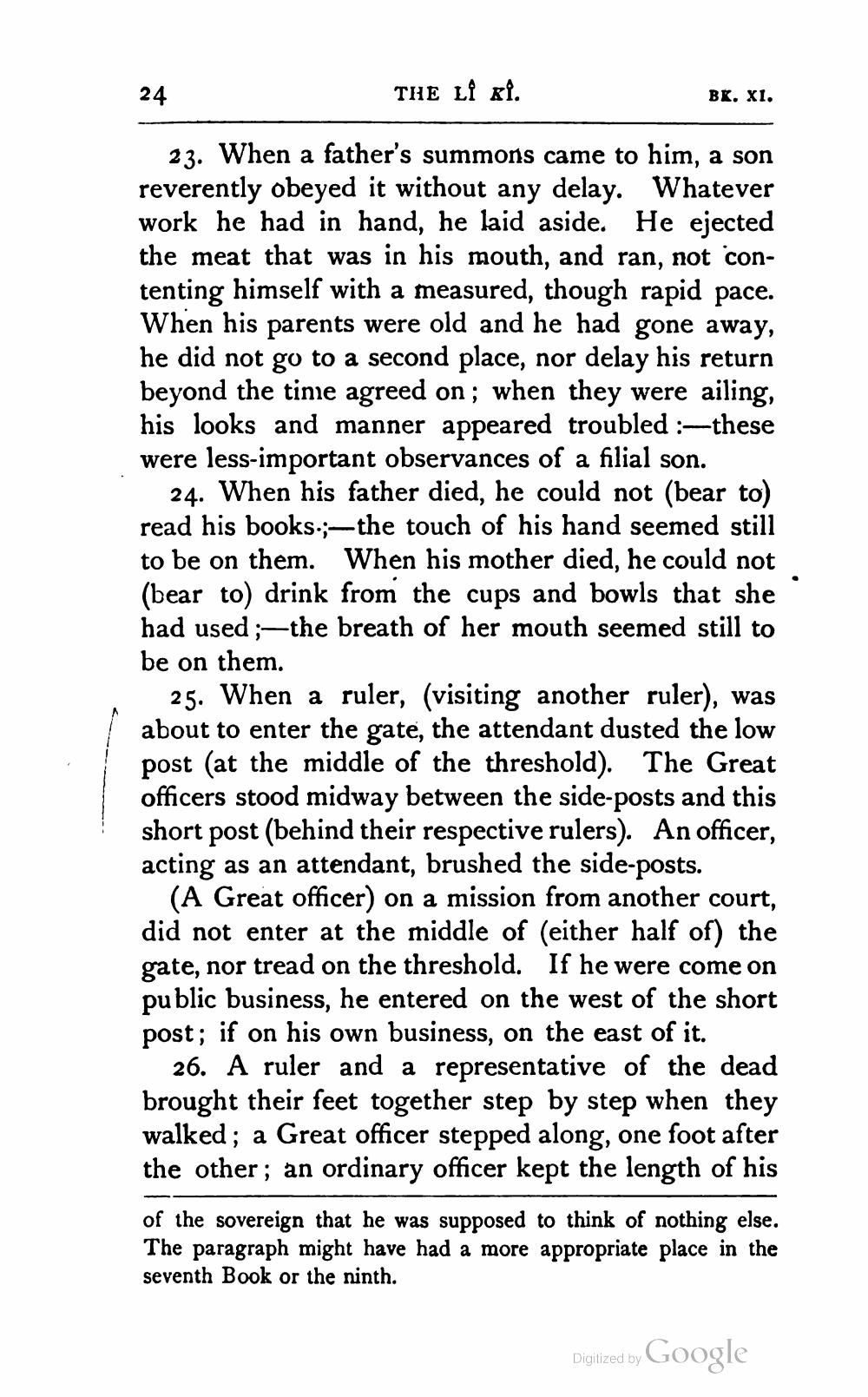________________
THE LI Kİ.
23. When a father's summons came to him, a son reverently obeyed it without any delay. Whatever work he had in hand, he laid aside. He ejected the meat that was in his mouth, and ran, not contenting himself with a measured, though rapid pace. When his parents were old and he had gone away, he did not go to a second place, nor delay his return beyond the time agreed on; when they were ailing, his looks and manner appeared troubled:-1 -these were less-important observances of a filial son.
24. When his father died, he could not (bear to) read his books;-the touch of his hand seemed still to be on them. When his mother died, he could not (bear to) drink from the cups and bowls that she had used; the breath of her mouth seemed still to be on them.
24
BK. XI.
25. When a ruler, (visiting another ruler), was about to enter the gate, the attendant dusted the low post (at the middle of the threshold). The Great officers stood midway between the side-posts and this short post (behind their respective rulers). An officer, acting as an attendant, brushed the side-posts.
(A Great officer) on a mission from another court, did not enter at the middle of (either half of) the gate, nor tread on the threshold. If he were come on public business, he entered on the west of the short post; if on his own business, on the east of it.
26. A ruler and a representative of the dead brought their feet together step by step when they walked; a Great officer stepped along, one foot after the other; an ordinary officer kept the length of his
of the sovereign that he was supposed to think of nothing else. The paragraph might have had a more appropriate place in the seventh Book or the ninth.
Digitized by
Google




